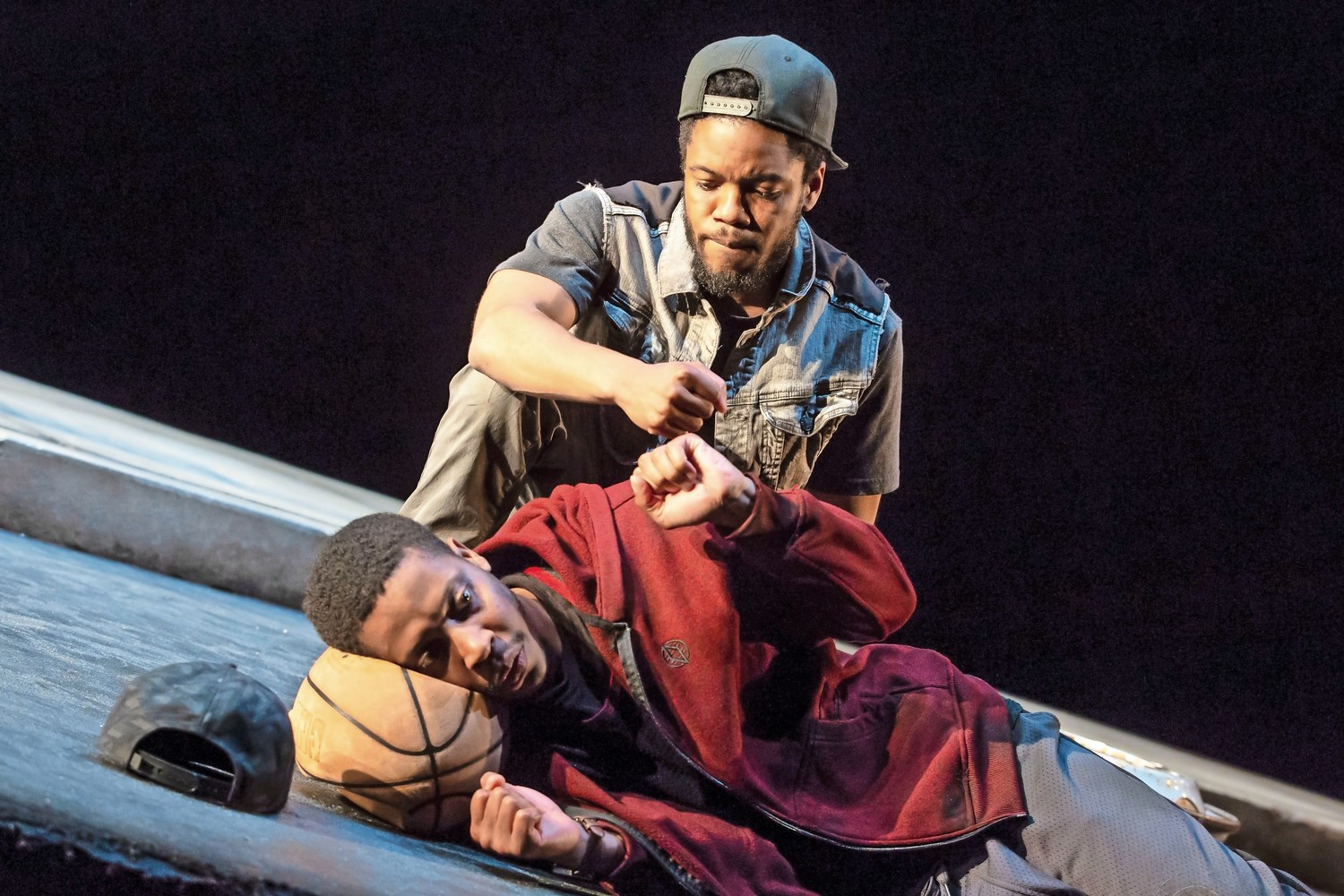‘Pass Over’ — One story that just won’t go away
A heap of hot-button issues and curious tangents are stacked up throughout Antoinette Nwandu’s new play “Pass Over” at the Claire Tow at Lincoln Center Theater.
The writing runs from the familiar to the mystifying, and the playwright is fortunate to have a talented design team, a cast of three strong actors, and a confident director to hold this amalgam together. The material is tough and challenging all around.
The play won Chicago’s Joseph Jefferson Award for its premiere production at Steppenwolf, and Spike Lee directed a filmed version of the play for Amazon Prime.
With such a pedigree, “Pass Over” might seem to have a bit too much of a mainstream profile for Lincoln Center’s LCT3 program, which is dedicated to new artists and new work. Though the production values are lush, there is no doubt that “Pass Over” qualifies as experimental.
Set on a bleak urban street corner suspended in a time-space continuum all its own, the play borrows context from Samuel Beckett and the Bible. Both “Waiting for Godot” and the Book of Exodus are strongly evoked, and the author blends in plenty of impressionistic touches of her own — all of which drive the play deeper into a dreamlike fever of mistrust and exploitation.
On one level, the play is a tortured poster child for a particular cultural flashpoint: Fear of the police, specifically the kind which threatens so many young African-American men today. Conversely, the play provides an illusory deliverance from that fear.
The cloud of police violence looms over the daily rounds of dreamy jive talk that the two man characters, Moses and Kitch (Jon Michael Hill and Namir Smallwood) spin out to pass the time on their dreary impoverished block, a block that both defines and confines them.
Ms. Nwandu weaves a lively, raw score for this pair, and these flights of fancy contract with their leaden prospects, and then collide head-on with the arrival of an outsider.
Laden with symbolism and allegory, and some timeworn liberal pieties, a peculiar visitor (Gabriel Ebert) interrupts the routine, as does the appearance of a perverse and brutal cop (also Ebert). A turnabout mystical fantasy is where Exodus appears, this time with the avenging angel getting his due.
This jumble of content does underscore the breadth of our racial divide. The play clearly shows how far we have to go, and the terror that some lawman can inflict. And while “Pass Over” accurately conveys the trap of urban poverty in all its constricted opportunity — as well as a kind of ethnic stereotype associated with it — this collision of street and subtext loops constantly back into itself, down into a narrowing flame.
Director Danya Taymor maintains a keen focus on the menace and the mystery, and the acting is powerful, persuasive and clear.
But there’s a hollow return to this journey. The frosting of a tune from “Oklahoma!” adds a gratuitous touch of irony to this swirl, and the percussive — and perhaps record setting use of the N-word — ramps up the echo chamber quality, all to a numbing effect.
That’s a shame for the poor souls who share yet another deprivation, both on the Claire Tow stage and on the blocks of America.






